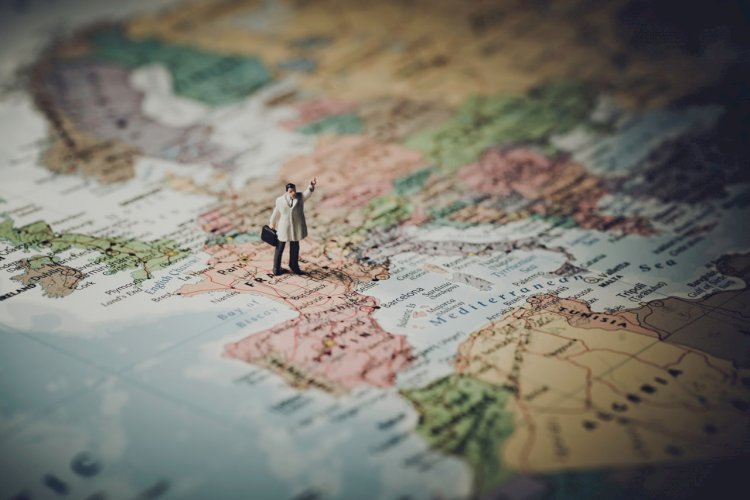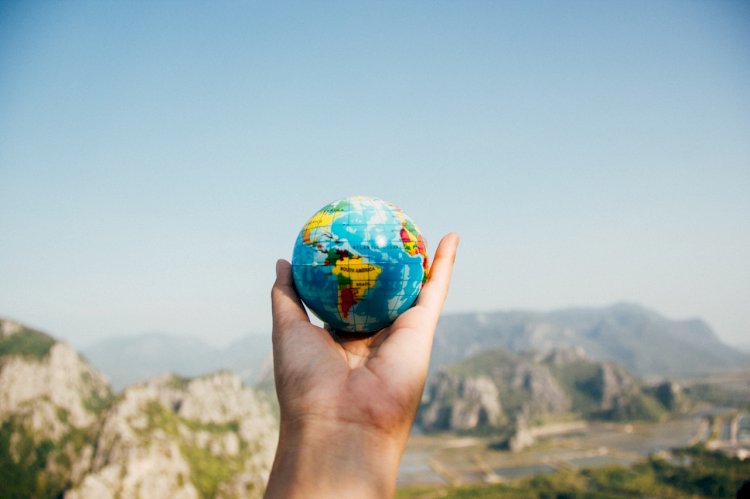How to prepare for an international move
Most people agree that moving is not fun, especially when your new home is in a foreign country. If you are moving internationally in the near future, you have probably already started worrying about all the challenges the relocation process brings.
Most people agree that moving is not fun, especially when your new home is in a foreign country. If you are moving internationally in the near future, you have probably already started worrying about all the challenges the relocation process brings. You would rather just wake up in your new home with all of your boxes unpacked. Our first piece of advice is to relax. Don’t let anyone scare you. Most people don’t enjoy the process because they don’t know how to properly prepare for an international move. Wherever you are moving, there are some general guidelines every expat-to-be can use. Below are some tips to help you handle the big move.
Preparing for an international move involves a lot of paperwork
One of the things that make international moves more complicated than local ones is paperwork. Every other mistake seems easier to fix, but not having your paperwork in order can cause serious complications, and even prevent you from moving. So, think about the following documents well ahead of time because they may take longer to obtain:
- Make sure your passport is up to date.
- If required, apply for a visa before you start preparing for an international move.
- Check if your driver's license is up to date. While in some countries you can drive with an International Driver’s Permit, others require an in-country license.
- Check what other official documents your new country requires.
- Get your medical paperwork from your doctor and dentist.
- If you are moving with pets, ask their vet to provide the necessary paperwork.
- Ask the school your kids attend for the necessary transfer certificates.
Learn about your destination
The country you'll be living in might be a whole new planet for you. To prepare for an international move and reduce culture shock, you need to find out more about the destination than what documents are necessary. Start with the basics - safety, culture, climate, and useful phrases (in case you don't already speak the language). Then, do some research on the cost of living, commuting, the best schools and places to live. Visit some online expat forums but bear in mind that they tend to be overly negative. It would be ideal to contact someone who used to live there or still does.
A pre-visit will help you to prepare for an international move
The Internet does help a lot but it would be even better to visit the destination before the move and see everything first-hand. Incorporating a pre-visit as part of your preparation tactic could heal your anxiety and fear of the unknown. If possible, visit your new home, office, your kids' new school (or all the schools you are considering), as well as the neighborhood stores and parks. Talk to the local people and find out as much as you can about the place where you are about to settle.
Alt: A man with a suitcase figurine standing on a map of Europe.
Find good movers to help you prepare for an international move
Moving is hard work, especially when you're moving abroad. That is why you need all the help you can get. When it comes to transporting your belongings overseas, the help of your friends and family won't be enough. You need to work with professionals who actually know a thing or two about preparing for an international move. It might be necessary that you hire them months in advance since they can be very busy, especially during peak season.
Why you need professional movers
In addition to providing the packing supplies, packing and transporting your stuff, your international movers can offer useful advice. For example, they can tell you all about different types of moving insurance, different customs requirements and different ways of shipping your items. Shipping your belongings by air from Jeddah to Sydney is not the same as shipping from Sydney to Jeddah. You need to know what kind of goods can and can't be shipped before you make your packing checklist and plan your moving timeline.
Packing for an international move demands a good strategy
Decide who does the packing
We recommend packing everything you need during the first week or two and taking it with you. Your movers can be in charge of the rest. A full-service relocation company like fourwinds-ksa.com will offer its packing services. Movers with experience will be able to pack all your belongings safely, even the breakable ones. On the other hand, packing for a long journey on your own demands a lot of skill, time, and physical strength. Plus, movers will not be responsible for damage to the items you packed. Some people let professionals pack only the most delicate items to save money.
Decide what to pack
First of all, determine what stays and what goes. It is advisable to pack only the necessities. Sometimes, it is cheaper to buy new stuff than move your old stuff. What you'll pack depends on the climate, culture, and prices in your destination country, as well as how long you are planning to live there. It also depends on what is already provided in your new place. Furthermore, you'll have to eliminate items that are not allowed to enter the country you are moving to. In most countries, perishables, weapons, hazardous materials, flammable and corrosive materials are on the list of prohibited items. Also, your boxes should not contain plants, food products, and alcohol. You can donate, sell or toss everything you're not taking.
Learn how to pack efficiently
If you decide to pack yourself, learn how to do it efficiently before you start. There are great online tutorials you might find useful. Use sufficient padding material and make sure your boxes are not too big and heavy. As you pack, write down what is inside each box. This way, you will know for sure if something is missing.
Author’s bio
Diana Combs is a content writer and high school teacher. When she is not writing or teaching, she spends most of her time in local libraries and book stores. She also enjoys swimming, hiking and playing with her pet dogs.
Share
What's Your Reaction?
 Like
0
Like
0
 Dislike
0
Dislike
0
 Love
0
Love
0
 Funny
0
Funny
0
 Angry
0
Angry
0
 Sad
0
Sad
0
 Wow
0
Wow
0


















When moving to a new home or rearranging the current home, moving furniture becomes one of the most important matters that must be handled with care. Choosing a reliable and affordable furniture moving company in Abha is the key to completing this process smoothly and safely. https://najwa-naql-sa.com/
When moving to a new home or rearranging the current home, moving furniture becomes one of the most important matters that must be handled with care. Choosing a reliable and affordable furniture moving company in Abha is the key to completing this process smoothly and safely. <a href="https://najwa-naql-sa.com/نقل-الاثاث/"> الخطوات الأساسية والنصائح العملية في عملية نقل الاثاث </a> <a href="https://najwa-naql-sa.com/شركة-نقل-العفش/"> نصائح لاختيار شركة نقل العفش الموثوقة والمحترفة </a> <a href="https://najwa-naql-sa.com/شركه-نقل-عفش/"> مزايا استئجار شركه نقل عفش </a>